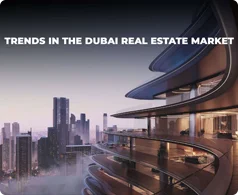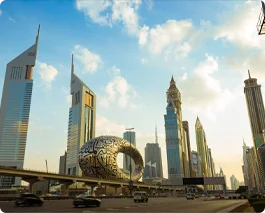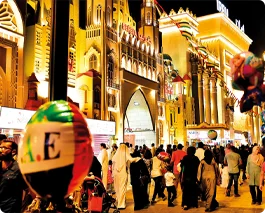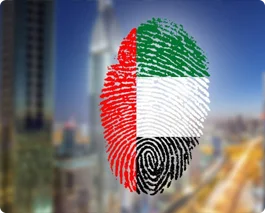Dubai Economy Analysis and Geopolitical Factors in Dubai
Dubai's economy and geopolitical factors demonstrate the UAE's remarkable progress in both economic and political aspects. Situated on the Arabian Peninsula's southeast coast, Dubai has become a worldwide economic force.
Dubai is at the crossroads of Europe, Asia, and Africa has driven it to the forefront of commerce and trade. Dubai has made deliberate investments in industries beyond its customary oil-based economy, cultivating a sturdy and resilient economic environment. This is by skillful leadership and a steadfast dedication to diversification. Over the years there has been an increase in Dubai’s economic and geopolitical importance. Dubai's blend of tourism, real estate, financial services, and logistics is what helps the city be economically successful. Dubai's geopolitical landscape is critical to its trajectory, with strategic partnerships, political stability, and visionary governance. All of these contribute to the city-state's prominence in the global arena.

Geopolitical Factors in Dubai
Dubai’s economic landscape connects with the Middle East’s geopolitical situation, where regional stability and challenges play a key part in shaping the Emirate’s trajectory. So what are the Geopolitical Factors in Dubai?
Dubai’s connections with neighboring countries are a vital pillar of its geopolitical strategy. Dubai skillfully navigates diplomatic ties to promote regional stability.
Dubai is well aware of the potential effects that geopolitical tensions in the area may have. Therefore, Dubai aspires to maintain pleasant relationships with neighboring countries through diplomatic engagement and proactive initiatives. Understanding that political stability is a vital component of long-term economic progress.
The geopolitical happenings that fluctuate throughout the Middle East extend to Dubai. Geopolitical events ranging from conflicts to diplomatic realignments also affect the Dubai economy. The political landscape of the region has a significant impact on Dubai’s trade policies. As well as in investment patterns, and the general economic environment.
The leaders of Dubai move quickly through this global turmoil. It takes calculated steps to reduce risks and take advantage of opportunities. Dubai has shown a remarkable capacity to adjust to the constantly shifting geopolitical forces that define the Middle East. They understand that geopolitical stability is both an opportunity and a challenge.

Dubai Economy Analysis
Dubai’s economic evolution is a remarkable story of diversification away from dependency on oil.
This stems from the understanding that the oil market was not predictable. Therefore, Dubai deliberately redirected its attention to technology, real estate, finance, and tourism. This strategic diversification protected Dubai from the risks of the oil industry. It also established a foundation for a diverse and resilient economy.
Initiatives from Dubai that contribute to its future transformation include the Dubai Vision 2021 and 2030. These act as comprehensive guidelines for Dubai. These programs enact policies that promote innovation, businesses, and a friendly atmosphere in the business environment in Dubai.
The development of free zones to attract foreign investment is a significant component of this approach. These zones have strengthened Dubai’s standing as a worldwide business hub, distinguished by favorable laws and incentives. The government constantly fosters a business-friendly climate. This demonstrates its dedication to establishing Dubai as one of the world’s leading and competitive economies.

Most Trending Projects in Dubai for You to Pick.
Emerging Trends in Dubai’s Real Estate Market
According to CBRE’s UAE Market Review in Q3 2023, Dubai’s residential real estate market in the year 2023 leading up to September 2023 has witnessed remarkable shifts, reflecting a dynamic and evolving landscape.



Dubai Real Estate Market Trends
Pricing Dynamic
19.6% increase in average residential prices
19.7% increase in average apartment prices
18.9% increase in average villa prices
Rental Market Trends
20.6% increase in average rent
20.7% increase in average apartment rent
20.1% increase in average villa rent Transactions
87,163 Transactions
Dubai Business Environment
Dubai has a vibrant business environment with many chances for entrepreneurs. This helps the city become a worldwide economic hub. Dubai’s favorable location and business-friendly infrastructure have created an atmosphere that is conducive to the success of businesses. The variety of industries in Dubai offers a wide range of opportunities. A perfect place for anyone seeking to enter the business world, from start-ups to well-established companies.
Moreover, there is a strong entrepreneurial vibe in the city. The numerous success stories of those who have taken advantage of the excellent business environment bear witness to it. Dubai's dynamic environment for business has the support of the government which actively promotes economic growth. The innovative leadership recognizes that a proactive role from the government is necessary for a strong and sustainable economy. Furthermore, government policies intend to simplify processes, reduce challenges, and promote innovation and investment. Dubai's government actively fosters an environment in which businesses can thrive. That is, from tax incentives to regulations that promote fair competition,

Cultural Diversity in Dubai
Cultural Diversity in Dubai has a thriving expatriate population, which accounts for a sizable portion of the city’s demography. Expats have profoundly affected Dubai’s labor market dynamics, bringing a varied range of skills, perspectives, and insight. The addition of skill has powered Dubai’s economy and contributed to a workforce that is innovative and adaptive.
Expatriates attracted to the city's economic opportunities provide a global perspective, creating an environment conducive to innovation and creativity. This blend of worldwide and local skills not only satisfies the needs of Dubai's several businesses. But also, positions the city with a workforce that reflects the interdependence of the modern world. Expats in Dubai impact social integration, cultural diversity, and the professional sphere. Dubai's neighborhoods demonstrate the city's diversity since they are home to various languages, customs, and culinary traditions. This cultural diversity shapes the social dynamics of Dubai. Dubai is a diverse city that welcomes customs from different cultures, creating an inclusive mindset that goes beyond borders. Dubai has a unique identity that showcases a harmonious blend of diverse backgrounds. This is due to the special mix of traditions created by different cultures in the city.

Dubai’s Global Influence
Dubai has a significant global influence. Dubai’s Global Influence has a worldwide cultural and economic impact, displaying a unique blend of traditions while reflecting modernity. Its thriving arts scene, rich cuisine, and distinctive buildings have set cultural trends. This is while simultaneously making Dubai a financial, commerce, and innovation destination.
Dubai actively defines regional and international policies, monetizing on its strategic location and economic competence. The city promotes international cooperation and communication on a range of topics by acting as a diplomatic bridge. Dubai is famous for hosting important events and playing a major role in shaping policies. It has become a powerful player in the Middle East and the world. Dubai is special because of its economy, culture, and global influence. The city proves that smart leadership and planning can help it adjust to a fast-changing world. The critical relations of economic and geopolitical factors have driven Dubai's transformation as a global city.

FAQs
Dubai attracts foreign investment through various initiatives. That is, including free zones, favorable business regulations, infrastructure development, and strategic location, making it an attractive hub for international businesses.
Major contributors to Dubai's GDP include real estate, tourism, aviation, trade, private sector, and financial services. These sectors play a vital role in shaping the economic landscape.
Dubai's strategic location between Europe, Asia, and Africa positions it as a global trade and logistics hub. This helps in international business and contributes to its economic growth.
The government of Dubai actively promotes economic diversification through initiatives such as Vision 2021 and Dubai Plan 2040. Hence, focusing on developing knowledge-based industries, innovation, and business.
Dubai's economy is affected by global economic trends, oil and gas prices, international trade, and geopolitical events. However, the government's diversification efforts aim to mitigate these impacts.
The government strives to ensure equitable economic opportunities for all communities in Dubai through inclusive policies, education, and workforce development programs.
The Dubai government employs various fiscal and monetary measures to address economic challenges, working in collaboration with international organizations to maintain economic stability.
Adil Adil
Share This Post
Found this information useful? Share it with your friends and family!
Leave your information so that our expert can consult you in the best way possible
Share your details for personalized expert guidance – let us assist you in the most effective way!
Head Office
Supreme Court Complex – 5 – 1st Floor – Office No: 112 Riyadh St – Umm Hurair 2 – Umm Hurair 1 – Dubai
Email:Info@apilproperties.com
Landline: +97145516626
Whatsapp: +971509026757
- Shall we call you back?
Head Office
Boulevard Plaza, Tower 1 – Suite 1102 – Downtown Dubai
Email:admin@offplan.apilproperties.com
Landline: +97145516626
Whatsapp: +971509026757
- Shall we call you back?
